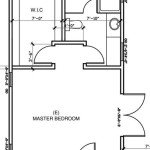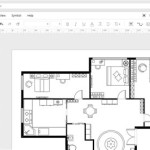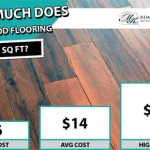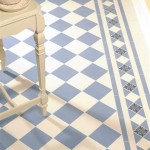Hardwood Floor Refinishing Ann Arbor: Restoring Natural Beauty and Value
Ann Arbor, Michigan, with its historic homes and vibrant community, boasts many residences featuring beautiful hardwood floors. Over time, these floors can lose their luster due to daily wear and tear, sun exposure, and simple aging. Hardwood floor refinishing offers a cost-effective solution to revitalize these floors, restoring their natural beauty and extending their lifespan. This process involves sanding away the old finish, repairing any imperfections, and applying new coats of sealant and finish, resulting in a durable and aesthetically pleasing surface.
The decision to refinish hardwood floors is a significant one for homeowners in Ann Arbor. It involves understanding the process, the different types of finishes available, and the potential impact on the home environment. This article aims to provide a comprehensive overview of hardwood floor refinishing in Ann Arbor, covering the key steps, considerations, and expectations involved in the project.
Understanding the Hardwood Refinishing Process
Hardwood floor refinishing is a multi-stage process that demands precision and careful execution. The process typically begins with a thorough assessment of the existing floor to determine the extent of damage and the best course of action. This assessment includes identifying any loose boards, deep scratches, stains, or other imperfections that require repair. The type of wood and the existing finish are also considered to ensure compatibility with the new finish.
The next step involves preparing the room for sanding. This includes removing all furniture, rugs, and other items from the area. Protecting walls, doorways, and adjacent rooms with plastic sheeting is crucial to minimize dust contamination. Ensuring proper ventilation is also essential to remove dust and fumes during the sanding and finishing stages.
Sanding is the core of the refinishing process. It involves using specialized sanding equipment to remove the old finish and create a smooth, even surface. This is typically accomplished in multiple passes, starting with a coarse grit sandpaper to remove the bulk of the old finish and imperfections, followed by progressively finer grits to achieve a smooth surface. Edge sanders are used to reach areas near walls and corners that the larger drum sander cannot access.
After sanding, the floor is meticulously cleaned to remove all traces of dust and debris. This is typically done with a vacuum cleaner equipped with a HEPA filter, followed by tack cloths to pick up any remaining fine particles. Thorough cleaning is critical to ensure proper adhesion of the new finish.
Once the floor is clean, repairs are made to address any remaining imperfections. This may involve filling nail holes, cracks, or gaps with wood filler that matches the color of the wood. Severely damaged boards may need to be replaced entirely. After the filler has dried, it is sanded smooth to blend seamlessly with the surrounding wood.
The final step is applying the new finish. This typically involves applying multiple coats of sealant and topcoat, allowing each coat to dry completely before applying the next. The type of finish used will depend on the homeowner's preferences and the desired level of durability and shine. Different types of finishes are discussed in more detail below.
Between coats of finish, a light sanding or buffing may be required to remove any imperfections or bubbles and ensure a smooth surface for the next coat. This meticulous attention to detail is essential to achieving a professional-looking finish.
Choosing the Right Finish for Ann Arbor Homes
The choice of finish is a crucial aspect of hardwood floor refinishing, as it directly impacts the appearance, durability, and maintenance requirements of the floor. Several types of finishes are available, each with its unique characteristics and benefits. Understanding these options allows Ann Arbor homeowners to make an informed decision that best suits their needs and lifestyle.
Oil-based polyurethane is a traditional and widely used finish known for its durability and resistance to scratches and stains. It provides a warm, amber hue that enhances the natural beauty of the wood. However, oil-based polyurethane has a strong odor and can take longer to dry compared to other finishes. It also tends to yellow over time, which may not be desirable for all homeowners.
Water-based polyurethane is a more modern alternative that offers several advantages over oil-based finishes. It has a lower odor, dries faster, and is more environmentally friendly due to its lower VOC (volatile organic compounds) content. Water-based polyurethane is also available in a variety of sheens, from matte to high gloss, allowing homeowners to customize the appearance of their floors. Unlike oil-based polyurethane, it does not yellow over time, preserving the natural color of the wood.
Moisture-cured urethane is an extremely durable finish that is often used in high-traffic areas or commercial settings. It is highly resistant to scratches, stains, and chemicals. However, moisture-cured urethane requires specialized application techniques and has a strong odor, making it less commonly used in residential projects.
Penetrating oil finishes, such as tung oil or linseed oil, penetrate the wood fibers and provide a natural, matte finish. These finishes are relatively easy to apply and maintain, but they offer less protection against scratches and stains compared to polyurethane finishes. Penetrating oil finishes are often preferred by homeowners who desire a more natural and rustic look.
Acid-cured finishes, also known as Swedish finishes, are known for their exceptional durability and resistance to wear and tear. However, they contain high levels of VOCs and require specialized application techniques, making them less commonly used in residential settings. Due to environmental concerns, these finishes are becoming increasingly less available.
When selecting a finish, it is important to consider factors such as the species of wood, the amount of foot traffic the floor will receive, and the desired level of maintenance. Consulting with a professional hardwood floor refinisher in Ann Arbor can help homeowners make the best choice for their specific needs and circumstances.
Factors Affecting the Cost of Refinishing in Ann Arbor
The cost of hardwood floor refinishing in Ann Arbor can vary depending on several factors. Understanding these factors can help homeowners budget effectively and avoid any unexpected expenses. The size of the area that needs to be refinished is a primary determinant of cost. Larger areas require more labor and materials, resulting in a higher overall price.
The type of wood can also influence the cost. Some wood species are more difficult to sand and refinish than others, requiring more time and expertise. Exotic hardwoods, for example, may require specialized finishes and techniques, increasing the overall cost.
The condition of the floor is another significant factor. Floors with extensive damage, such as deep scratches, stains, or water damage, may require more extensive repairs before refinishing can begin. This can involve replacing damaged boards, filling cracks and gaps, and leveling uneven surfaces, all of which add to the overall cost.
The type of finish selected will also affect the cost. Some finishes, such as moisture-cured urethane or acid-cured finishes, are more expensive than others due to their specialized formulations and application requirements. The number of coats of finish applied will also impact the cost, as each additional coat requires more labor and materials.
The level of preparation required can also influence the cost. Moving furniture and other items out of the room, protecting walls and doorways, and ensuring proper ventilation all contribute to the preparation process. If the homeowner chooses to handle these tasks themselves, they can potentially save on labor costs. However, it is important to ensure that the preparation is done thoroughly to avoid any issues during the refinishing process.
The complexity of the job can also affect the cost. Floors with intricate patterns or borders may require more time and skill to refinish, resulting in a higher price. Similarly, floors with multiple rooms or levels may be more challenging to refinish, increasing the overall cost.
Finally, the experience and reputation of the hardwood floor refinisher can also influence the cost. More experienced and reputable contractors may charge higher rates, but they are more likely to provide high-quality workmanship and ensure that the job is done correctly. It is important to obtain multiple quotes from different contractors and compare their prices and services before making a decision.
In addition to the direct costs of refinishing, homeowners should also consider any indirect costs, such as the cost of temporary accommodation if the refinishing project requires them to leave their home. It is also important to factor in the cost of cleaning and maintaining the floors after they have been refinished.
By understanding the factors that affect the cost of hardwood floor refinishing in Ann Arbor, homeowners can make informed decisions and budget effectively for their project. Obtaining multiple quotes, considering the condition of the floor, and selecting the appropriate finish are all important steps in the process.
Hardwood floor refinishing in Ann Arbor can significantly enhance the beauty and value of a home. By understanding the process, the available finish options, and the factors that influence cost, homeowners can embark on this project with confidence and achieve results that they will enjoy for years to come. Consulting with experienced and reputable hardwood floor refinishers in Ann Arbor is essential to ensure a successful and satisfying outcome.

Hardwood Floor Installation Ann Arbor Refinishing Flooring

Restoration And Refinishing In Ann Arbor Koby Craftsmen

Resources Hardwood Floor Installation Ann Arbor Refinishing Flooring

Restoration And Refinishing In Ann Arbor Koby Craftsmen

Ann Arbor Hardwoods Updated July 2025 33 Photos 3868 Trade Center Dr Michigan Flooring Phone Number Yelp

Hardwood Floor Installation Ann Arbor Refinishing Flooring

Hardwood Floor Installation Ann Arbor Refinishing Flooring

Restoration And Refinishing In Ann Arbor Koby Craftsmen

Ann Arbor Mi Hardwood Floors Dark Wood Refinish Floor Installation Refinishing Flooring

Ann Arbor Hardwoods Updated July 2025 33 Photos 3868 Trade Center Dr Michigan Flooring Phone Number Yelp







